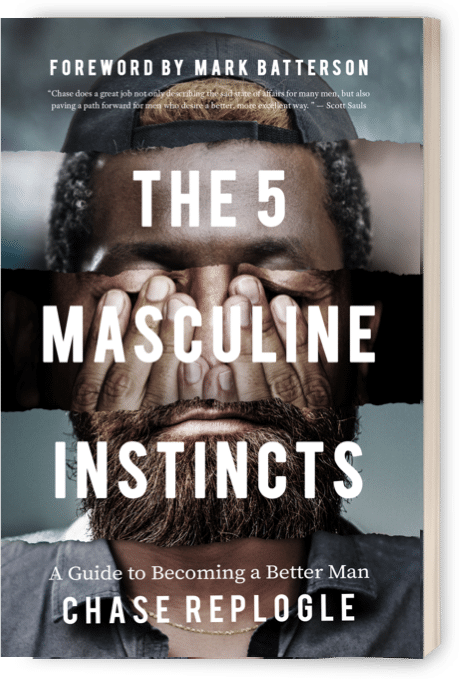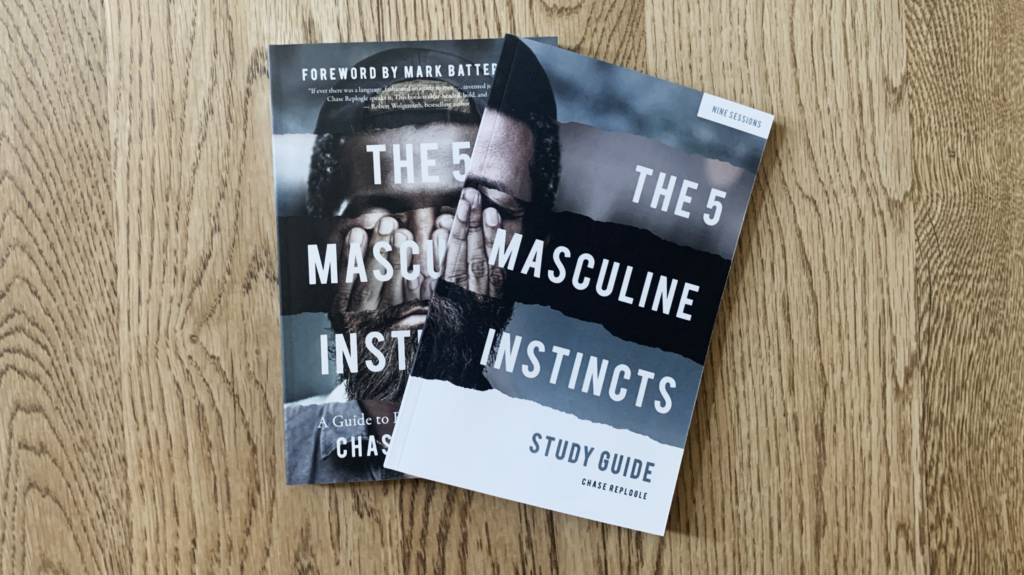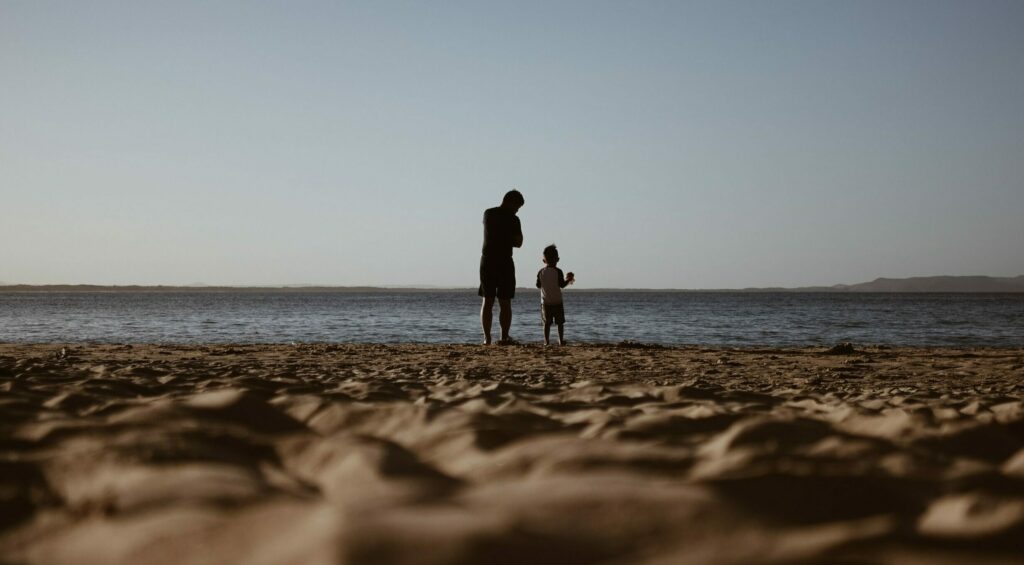Article
Why Every Millennial Man Should Reread The Samson Story
I like to imagine him in Ray-Bans, a man bun, and a CrossFit t-shirt, hiking through...
“The modern hero is the outsider. His experience is rootless. He can go anywhere. He belongs nowhere. Being alien to nothing, he ends up being alienated from any type of community based on common tastes and interests. The borders of his country are the sides of his skull.”
― Flannery O’Connor, The Catholic Novelist in the Protestant South
We are facing an epidemic of discontentment and disillusionment amongst men, particularly those like myself, millennials. We’ve been told our entire lives that you can be anything you want to be, but by thirty the truth has finally started to set in. It’s not entirely true, at least not the way we imagined it would be.
Rose Hackman, in an article entitled, “As millennials, we’re all in dire straits. But I worry most about our men” writes about a close friend wrestling with his own feelings of discontentment. She recounts:
“He picked up a discarded, almost empty beer can, and chugged. He talked about his parents, about how stuck he felt in his job, how he felt he couldn’t see a way out. He spoke of inequality and broken dreams in this country, and how useless he felt as an adult… None of his musings were self-pitying indulgence or narcissistic… His complaints and analyses all rang true. Millennials living in the United States do not need statistics to tell us how false the American dream is. We know it from our guts…”
What’s False About The American Dream
What’s “false” about the American dream isn’t the lack of possibility to become what you want to be, that’s more possible at this moment in America than almost any other time or place in the past. What’s false is that that possibility is the highest value. What’s false is that possibility can deliver on a meaningful identity. What’s false is that we need possibility to find ourselves.
Possibility is about control, a kind of freedom that comes with no responsibility. It’s the expectation that we can choose our own being. And we are obsessed with what could be—who we could be. The endless availability of options means we’re never quite done choosing.
When we start to feel uncomfortable with who we are or how our life is developing, we go looking for new options. We start looking for alternatives. Our culture’s obsession with consumerism has convinced us we can choose our way out of any crisis. We find new role-models. We buy new vehicles. We day-dream about new relationships. We live in a world that offers more of these options than ever before. Choose who to love. Choose what to do. Choose a new career. Choose a new place to live. Choose who to follow. Choose who to hang out with. Choose what brands to buy. Choose a profile image—choose a better filter for that profile image. Choose what kind of man you want to be.
We think we can choose our way to discovering our identity. We think we can keep choosing and continue to refine our destiny. The great enemy of our day is any restriction on our free choosing: parents, government, or God himself. Expectations and commitments are the constant threat to our free choice and the potential of who we are hoping to become.
Too often Millennials get a bad wrap for this self-absorption, but it’s hardly just a Millennial quality. Self-interest is as old as the garden; the sin just continues to peculiarly manifest itself in each new generation. For my grandparents it was in reputation and social position; for my parents, it was cars, homes, and vacations; for Millennials it seems to be purpose, adventure, and individuality. Each generation has its way of scaffolding out a desire into a corresponding identity and working to achieve that ideal design. For Millennials, the project is the adventure of self-discovery.
Individuality and the pursuit of your own way have become the new hero’s journey. There is no calling higher than self-discovery. There is no greater adventure than the pursuit of originality. Conformity is death and cowardice. Finding your identity is the hope of salvation, to know and be who you could be.
According to Steve Jobs:
“Your time is limited, so don’t waste it living someone else’s life. Don’t be trapped by dogma – which is living with the results of other people’s thinking. Don’t let the noise of others’ opinions drown out your own inner voice. And most important, have the courage to follow your heart and intuition.”
Your Destiny Lies Within You
Last year, my family went to Disney World. The Magic Kingdom has an incredible light and fireworks show. Thousands of people were packed around the castle watching. The technology is magic. Laser lights, fireworks, music, and video projection bring the castle’s turrets and walls to life with the pantheon of Disney heroes. My three-year-old son sat on my shoulders in awe. I was in awe.
Disney is a master of storytelling. They can move the hearts of grown men and toddlers alike. I listened as the narrator pieced together the show’s songs and animation with these words: “Each of us has a dream, a heart’s desire. It calls to us. And when we are brave enough to listen, bold enough to pursue it, that dream will lead us on a journey to discover who we are meant to be. All we have to do is look inside our hearts and unlock the magic within. Your destiny lies within you; you just have to be brave enough to see it.”
Your identity lies within your heart’s desires. You can not underestimate how much of life is now driven by that pursuit. The pursuit of who you uniquely are is the American dream. It motivates what you post on Instagram, how you describe yourself in a Twitter bio, the brands you buy, and the logos clung to the back window of your car. It is sold in marketing, promoted by celebrities, and preached by too many pastors. To become who you can be, you have to embrace your desires above every other presumption. Or to put it more millennially, “you do you.”
But there is one big problem.
But Your Heart Will Inevitably Betray You
The problem? Who in the world understands his own heart’s desires. For Disney, it always seems clear. But in life, our hearts are a mixed bag of half-baked passions and a war of conflicting desires. Worse, our desires are malleable and easily manipulated by propaganda and sin. Trusting our hearts, what we actually experience is explained much better by Francis Spufford:
“You glimpse an unflattering vision of yourself as a being whose wants make no sense, don’t harmonize: whose desires, deep down, are discordantly arranged, so that you truly want to possess and you truly want not to, at the very same time. You’re equipped, you realize, for farce (or even tragedy) more than you are for happy endings.”
Or as the prophet Jeremiah puts it, “The heart is deceitful above all things and beyond cure. Who can understand it?”
I need you to recognize what you are attempting to do. You are trusting your heart to produce an identity. You are hoping that passion will guide you to meaning. You are ignoring what we all know; your heart is as confused in its desires as you are in trying to follow it.
The Russian novelist Leo Tolstoy had a good analogy for what I’m trying to describe. He once wrote,
“Had I been like a man living in a wood from which he knows there is no exit, I could have lived; but I was like one lost in a wood who, horrified at having lost his way, rushes about wishing to find the road. He knows that each step he takes confuses him more and more, but still he cannot help rushing about.”
Your heart is an insufficient place to go looking for who you are. Your heart can’t guide you out of the woods. And there are consequences of attempting to build towers on the shifting sands of your heart’s desires.
The unacknowledged problem is that all of this depends on knowing what you want. It depends upon your heart’s desires being something you can actually understand and articulate back to yourself. It depends on you making sense to yourself. It’s laughable. Most days I can’t decide if I want Cashew or Sweet and Sour Chicken at the China Cheif drive-thru. Good luck deciding who you want to be in fifty years.
If Jeremiah is right, and no one can truly understand their own heart, or it’s twisted tangle of desires, then placing our hope for an identity on it seems like a flimsy proposition.
What the Flannel Board Failed To Teach You About Samson
Enter Samson. Outside the Grand Palace in Peterhof, Russia sits one of the great statues of Samson. A fountain cast in gold, it depicts a chiseled, shirtless Samson ripping apart the jaws of a roaring lion with his bare hands. Samson looks Herculean. You can almost hear the popping and cracking of the lion’s jawbones buckling under Samson’s strength. The whole scene is suspended in tension. Samson looks every part the hero. Like the sultriest of Greek gods, Samson gives form to courage and brawn. This is the kind of guy they put on the cover of Harlequins.
Samson is everything a man might imagine becoming. I like to imagine him in Ray-Bans, a man bun, and a CrossFit t-shirt, hiking through some remote red stone canyon, documenting his adventurous life on Instagram. He is the model man, driven by passion and restless for adventure and romance. He was fascinated with the seductive nature of Philistia, the risk of roaming into enemy territory only making it all the more adventurous.
Samson’s story is the millennial story—pursue your desires and individuality against any expectation that would hold you back. Your true self is out there on the horizon. Seize it. Don’t let your parent’s stuffy traditions or your community’s prudish tendencies hold you back.
And so Samson charted his course off into the sunset, his heart beating with the adrenaline of passion and possibility. Samson pursued his desires with all his heroic, God-given talent, honestly believing that his heart’s desires would lead him to greatness, but it only quickened his ruin.
He would end up bound, eyes gouged out, forced into slave labor in the temple of the Philistine god, Dagon. His ultimate destination was the furthest imaginable experience from the ideal that drove him to pursue it. His desire cost him the very thing that compelled him.
Betrayed by love, by his own people, by the Philistines he so admired, and by his own strength, his failure wasn’t ultimately entrusting Delilah with his secret, it was not trusting God with his destiny. Ultimately it wasn’t just Delilah who betrayed him. Samson was betrayed by his own heart’s desires. That is a massive warning about how many of us are pursuing our identity.
If you read Samson’s story carefully, you will discover much of your own life. Samson’s story became life changing for me in this way. I watched as he struggled to pay attention to the Spirit’s work, constantly distracted by his desires. I read closely as he suffered under the disillusionment of a life that seemed always to be off the rails. I found myself just as confused by his constantly broken relationships as he seemed to be in breaking them. I watched his restlessness give way to broken vows and suddenly recognized my own wayward tendencies.
That is the way we read Samson’s story well. His life is no easier to understand than your own. Like Samson, we all live in the constant ambiguity of dead ends, false starts, unfulfilled dreams, and disappointments. Learning to read Samson’s story helps you acquire the skills to read and understand your own story. Here were the tools of discernment I needed. This story was the means of piecing together my story. I think it provides the tools most Mellinial men are missing.
You Already Have What You Need
What we discover from Samson’s story is that an identity cannot be achieved it must be received. Who you are becoming is not something you’re very good at leading. Far better you develop the skills of discernment to recognize the work God is leading.
Who you are has more to do with what you receive, the work God has already begun in the pedestrian place you’re already living, than what you might someday obtain.
As one writer explained to his student:
“If your everyday life seems poor, don’t blame it; blame yourself; admit to yourself that you are not enough of a poet to call forth its riches; because for the creator there is no poverty and no poor, indifferent place.”
We have lost our disciplines of discernment, gratitude, stillness, and contentment. We are paying the consequences for it. We have reaped lives of disillusionment, discontentment, uncertainty, and anxiety.
But you can stop. It’s what the Bible calls Sabbath. A deliberate act of checking your own ambition, taking your hands off your identity, and paying closer attention to what is already around you. Recognizing that a greater hero is your hope. That salvation, like your idenitty, is a received grace.
The adventure you have been looking for isn’t out there on the horizon, it’s right here: around your kitchen table, reading books with your kids in bed, learning to love your wife through difficult times, faithfully serving a community in work and worship. “Making it your ambition to lead a quiet life,” as Paul would advice.
What you have been looking for—the passion, the calling, the adventure—is already in front of you. You have everything you need to become who you’re becoming. You have God. And As Samson discovered, one single moment of faith is enough to reorient a life—to receive a new identity.
Samson’s story is a treasure trove of human emotion, failed dreams, dulled discernment, painful consequences, confused conclusions, and yet still remarkable life-giving grace. Right now, we need his story desperately. And we need it reminded to us regularly.
Go read it. Reread it.
I think you will discover what I did:
“There must be a real giving up of the self. You must throw it away “blindly” so to speak. Christ will indeed give you a real personality: but you must not go to Him for the sake of that. As long as your own personality is what you are bothering about you are not going to Him at all. The very first step is to try to forget about the self altogether… Give up your self, and you will find your real self. Lose your life and you will save it.
Submit to death, death of your ambitions and favourite wishes every day and death of your whole body in the end: submit with every fibre of your being, and you will find eternal life. Keep back nothing. Nothing that you have not given away will ever be really yours. Nothing in you that has not died will ever be raised from the dead. Look for yourself, and you will find in the long run only hatred, loneliness, despair, rage, ruin, and decay. But look for Christ and you will find Him, and with Him everything else thrown in.”
— C. S. Lewis, Mere Christianity
Get Updates on New Articles
I know, no one wants more emails. I promise, no spam and you can cancel at any time. I’m excited to share more about The 5 Masculine Instincts with you. If you ever have questions, please feel free to send me a message.

Chase Replogle
Chase is the pastor of Bent Oak Church in Springfield, MO and hosts the Pastor Writer Podcast. A native of the Ozark woods, he enjoys being outdoors with his wife and two kids: sailing, playing the mandolin (badly), and quail hunting with his bird dog Millie.

Don’t trust your instincts—there's a better way to become a better man.
The BookArticle

The New 5 Masculine Instincts Study Guide: And Why I’m Optimistic for Men
It’s been over a year since I released The 5 Masculine Instincts. I wrote the book because, as a pastor, I saw the way so many men were wrestling with questions…
Article

The Responsibility of Fatherhood: How Fatherhood Begins With Just Showing Up
I believe it is a truth that a mother is made over a matter of months, but you always become a father in a single moment. I remember that moment…
Article

What the Church Gets Wrong About Men Today: Moving Beyond Beards, Bacon, and Blowing Things Up
Every semester, my Bible College held a separate men’s and women’s chapel, and every year we talked about the same things. My roommate would customarily joke, “Boys, today’s the day…




